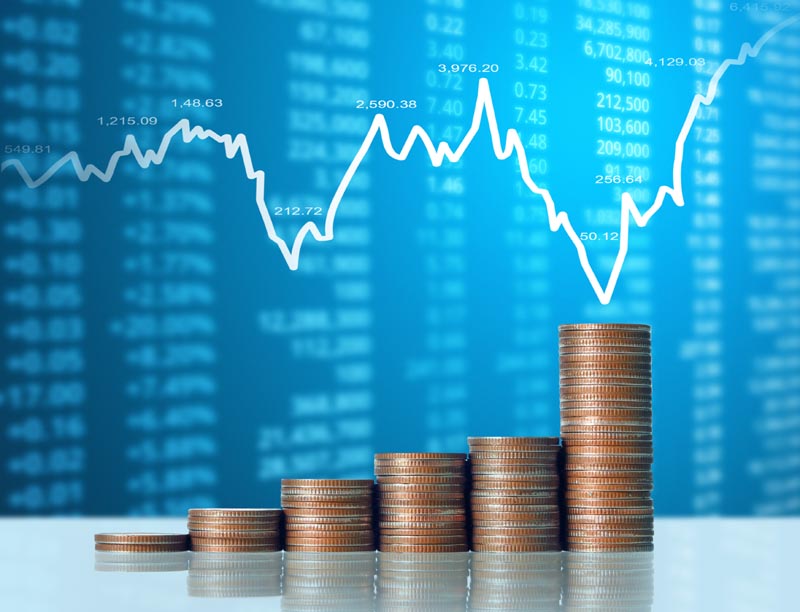 Fixed Deposit
Fixed Deposit
Budget 2023: What Changes Can We Expect from Fixed Deposit Interest Rates?
Budget 2023 has been released, and investors are curious to know what changes to expect from fixed deposit interest rates. With the Reserve Bank of India (RBI) maintaining an accommodative stance on interest rates, the government may introduce policies that could have an impact on the interest rates offered on fixed deposits.
FD investment is a popular and safe investment option for individuals who are risk-averse and prefer guaranteed returns. A fixed-duration financial deposit (FD) is made with a bank or other financial institution for a specific time, usually a few months to a few years. The interest rate on FDs is determined by the investment's tenure and the current market rates. This article will examine how fixed deposit works, as well as what changes we can expect from fixed deposit interest rates in 2023.
What are fixed deposit interest rates?
Fixed deposit interest rates are the interest rates offered by banks on fixed deposit investments. Fixed deposits are a popular investment option for individuals who want to earn a fixed rate of return on their savings.
How fixed deposit works is that it provides a safe and stable investment option for those looking to earn a guaranteed return on their savings over a fixed period. The institution holds the money while the interest rate, which is typically higher than that of a typical savings account, is fixed. An FD investment tenure ranges from a few months to several years. At the end of the term, the initial deposit and accumulated interest are returned to the investor.
Why are fixed deposit interest rates important?
Fixed deposit interest rates are an important factor to consider when deciding where to invest your money. Your investment's profits might be significantly impacted by the interest rate that a bank is offering. Indicators of the state of the economy generally include fixed deposit interest rates. When interest rates are high, the economy is often expanding, and credit is in high demand. Conversely, when interest rates are low, it can be a sign that the economy is struggling.
What changes can we expect from the upcoming budget?
The upcoming Budget 2023 is expected to have a significant impact on fixed deposit interest rates. Here are some of the changes that we can expect:
Increase in interest rates
The RBI has been maintaining an accommodative stance on interest rates to support economic growth. This has led to many banks offering low-interest rates on fixed deposits. When the economy starts to recover from the epidemic, the government may implement policies that lead to an increase in the interest rates on fixed deposits. This would be a pleasant change for investors who have been receiving meagre returns on their fixed deposit accounts.
Introduction of new tax policies
The government may introduce new tax policies that impact the returns earned from fixed deposit investments. For example, the government may tax the interest earned from fixed deposits. This would reduce investors' net returns, making fixed deposits less attractive.
Changes in liquidity policies
The government may introduce policies that impact the liquidity of banks. This could have an indirect impact on fixed deposit interest rates. For example, suppose the government introduces policies restricting the flow of funds into the banking system. In that case, banks may be forced to increase interest rates on fixed deposits to attract investors.
Introduction of new investment options
The government may introduce new investment options that compete with fixed deposits. This would pressure banks to increase their interest rates to attract investors. Additionally, the government may introduce policies encouraging individuals to invest in other investment options, such as equities or mutual funds. This would reduce the demand for fixed deposits, leading to a decrease in interest rates.
Conclusion
The upcoming Budget 2023 is expected to have a significant impact on fixed deposit interest rates. While we cannot predict what changes the government will introduce, there is a possibility that we may see an increase in fixed deposit interest rates. However, there is also a possibility that the government may introduce policies that reduce the attractiveness of fixed deposit investments. As always, investors must stay informed and closely monitor developments that may impact their investments.
Support Our Journalism
We cannot do without you.. your contribution supports unbiased journalism
IBNS is not driven by any ism- not wokeism, not racism, not skewed secularism, not hyper right-wing or left liberal ideals, nor by any hardline religious beliefs or hyper nationalism. We want to serve you good old objective news, as they are. We do not judge or preach. We let people decide for themselves. We only try to present factual and well-sourced news.







